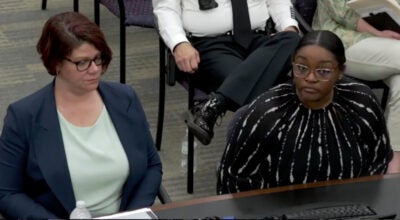Local colleges expecting normal enrollment after pandemic decline
Published 12:00 am Wednesday, April 7, 2021
SALISBURY — Higher education enrollment declined nationally in the wake of the COVID-19 pandemic, but things are looking up for local colleges.
The latest data from National Student Clearinghouse Research Center, published in March, shows an overall college enrollment decline of 2.9% compared to last spring, including a 4.5% drop in undergraduate enrollment and a 4.3% jump for graduate programs.
The Post reported a 4.11% drop in enrollment at Rowan-Cabarrus Community College in September after years of sustained growth at the college and following the first year of state-wide community college enrollment growth in a decade in 2019.
This enrollment at the college was already improving during the fall and it expects growth in the upcoming year.
Catawba College Dean of Students Jared Tice, who also serves as chief enrollment officer, said the college saw a 6% decline in full-time equivalent enrollment, but this fall it is expecting it to rise back to a similar level to 2019. Tice said a major indicator was increasing student deposits during January and February.
Full-time equivalent represents credit hours, rather than students. A full-time student takes at least 12 credit hours, and counts as 1 FTE. A part time student could take six hours while a full time student with a full schedule could take 18. Those two students would average out to two for the metric.
Tony Baldwin, associate vice president of operations and student affairs at Livingstone College, said enrollment and application rates for the college did drop due to the pandemic, but it has also seen an uptick recently.
Baldwin said the college is expecting applications to pick up more as COVID-19 vaccines become more available availability and lessening restrictions at the state level.
“Livingstone College is enrollment driven,” Baldwin said. “Therefore, it plays a key role in our budget. However, it is important to our president, Dr. Jimmy R. Jenkins Sr., that our mission not be sidetracked by uncertain times. Under his leadership, the college’s response to the pandemic has been calculated and compassionate.”
Baldwin said there have been no furloughs, layoffs or negative changes to programs because of the pandemic. Federal relief has been made available to higher colleges via the federal CARES Act relief package passed last year.
Livingstone is looking to boost enrollment for the coming year in a few ways. It is offering a bachelor’s degree in business administration all online next semester to target students who want to stay home or non-traditional students and it is offering a $1,000 COVID-19 grant to students readmitted to the college.
Baldwin said engaging with students is an important because they are the best recruiters for any higher education institution. The college is organizing pandemic-appropriate activities.
RCCC is planning to hire up to a dozen high school counselors this summer to serve as recruitment advisors to help students graduated last year and this year apply to college and financial aid. The college is contacting students who suspended their academics due to COVID-19.
Tice said this is a competitive market for higher education, with major public institutions throughout the state and a litany of other small colleges nearby for students to choose from as well as community colleges offering a more affordable entry into a college career.
Tice said some students will not choose Catawba, but they all need an experience that suits them and colleges like Catawba can offer something to fit anyone.
This year, Catawba is offering seven credit hours of summer classes for students at no cost to them via grants, scholarships and credits.
The college also launched three graduate programs last year in clinical mental health counseling, sport management and business administration in direct response to the pandemic.




